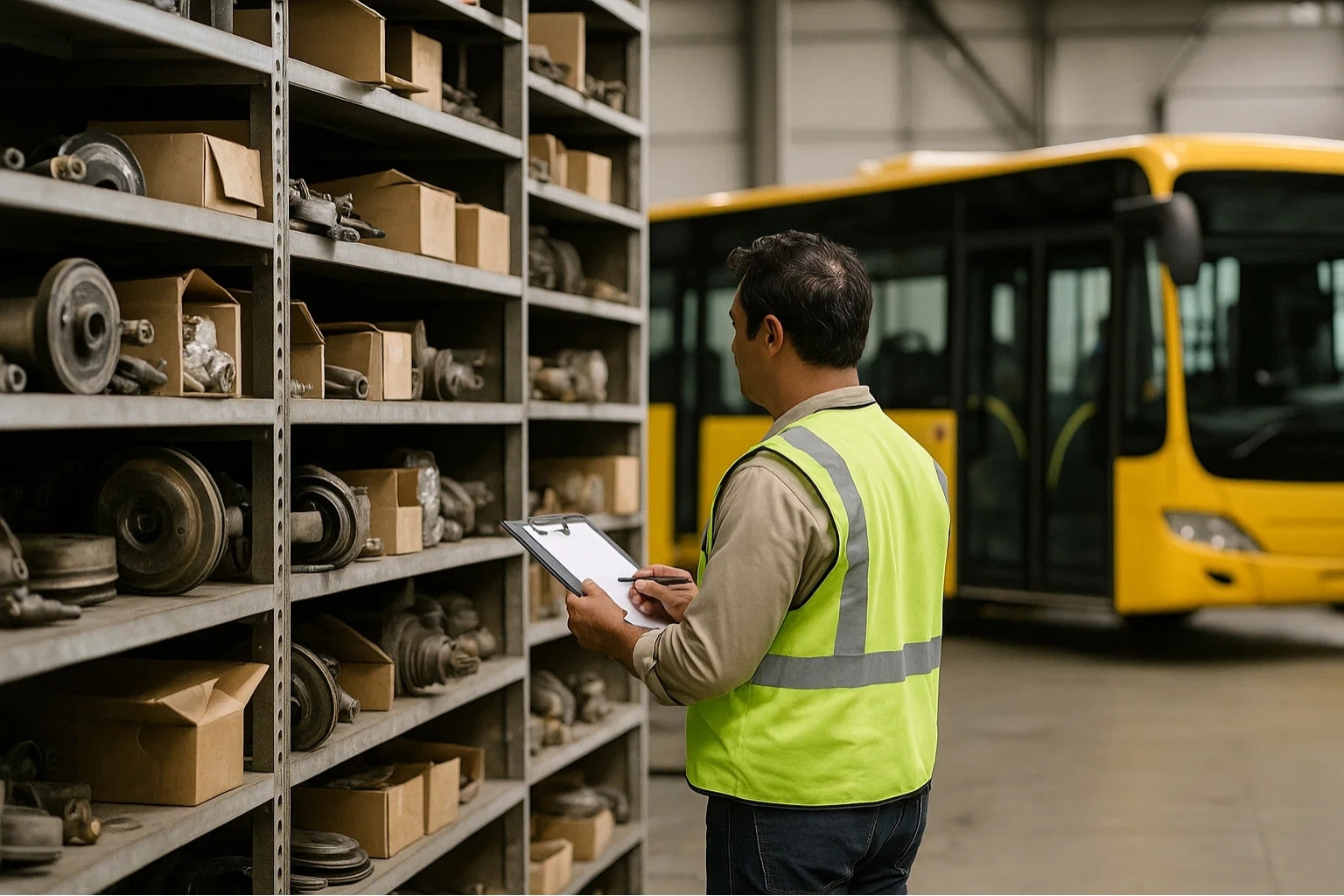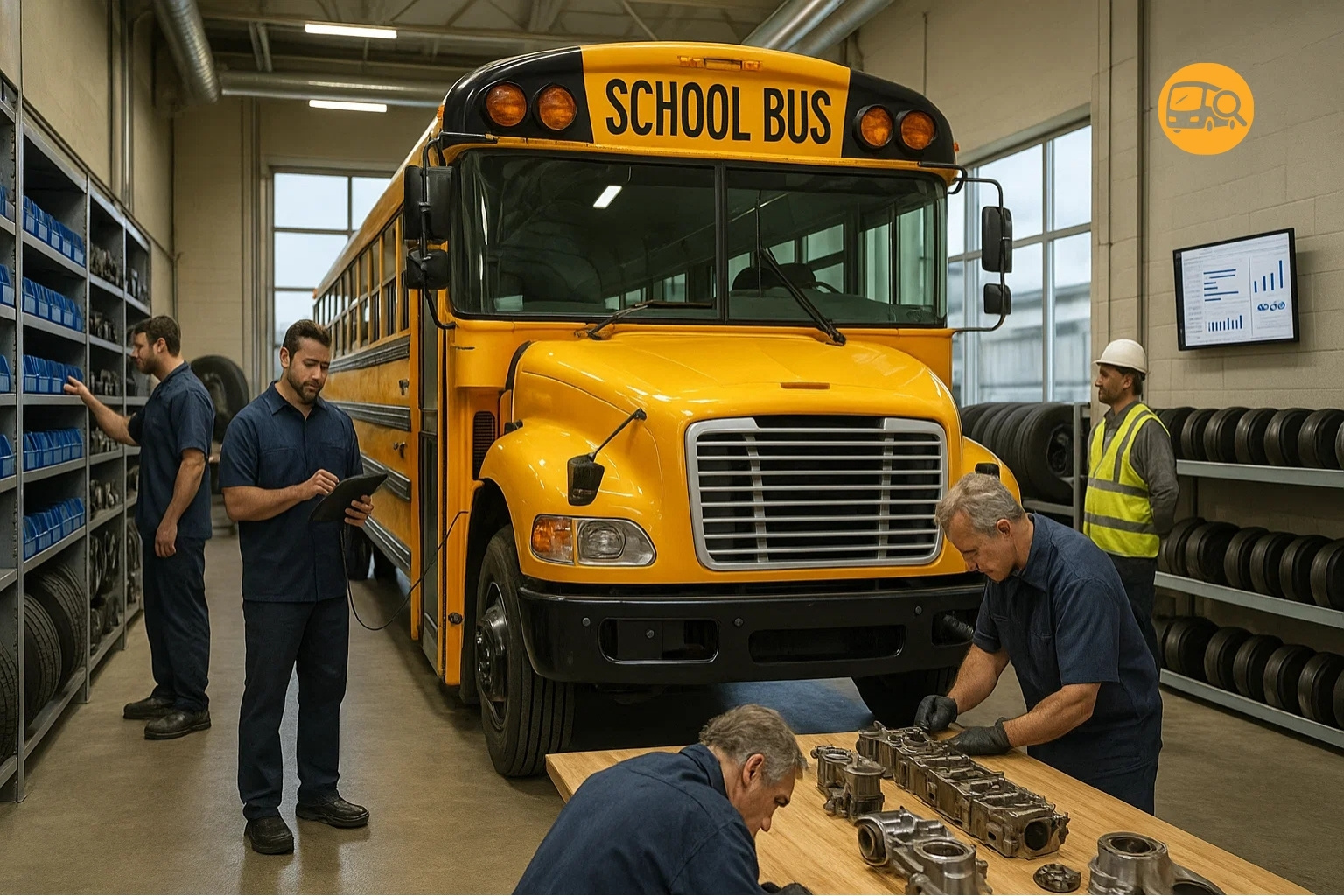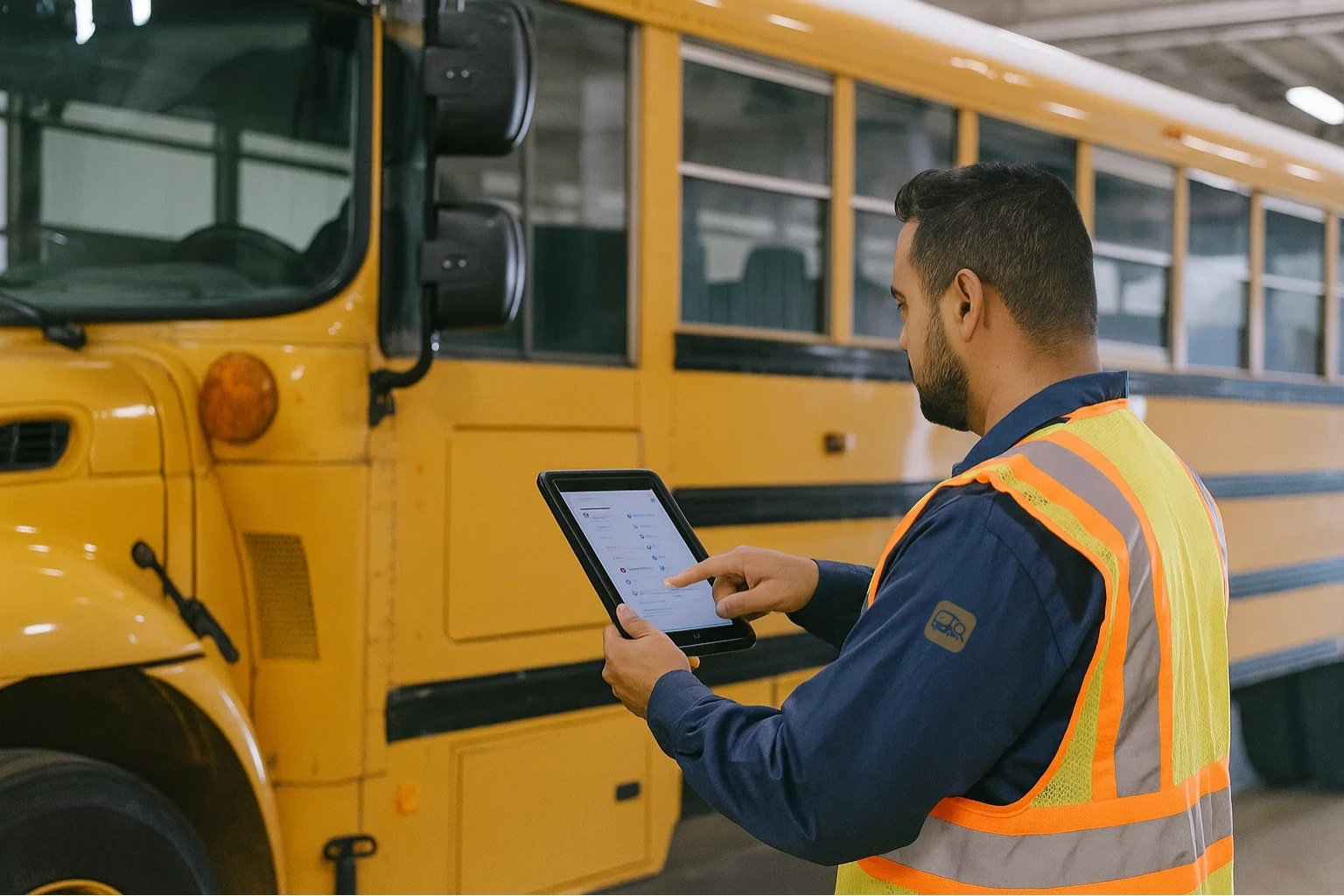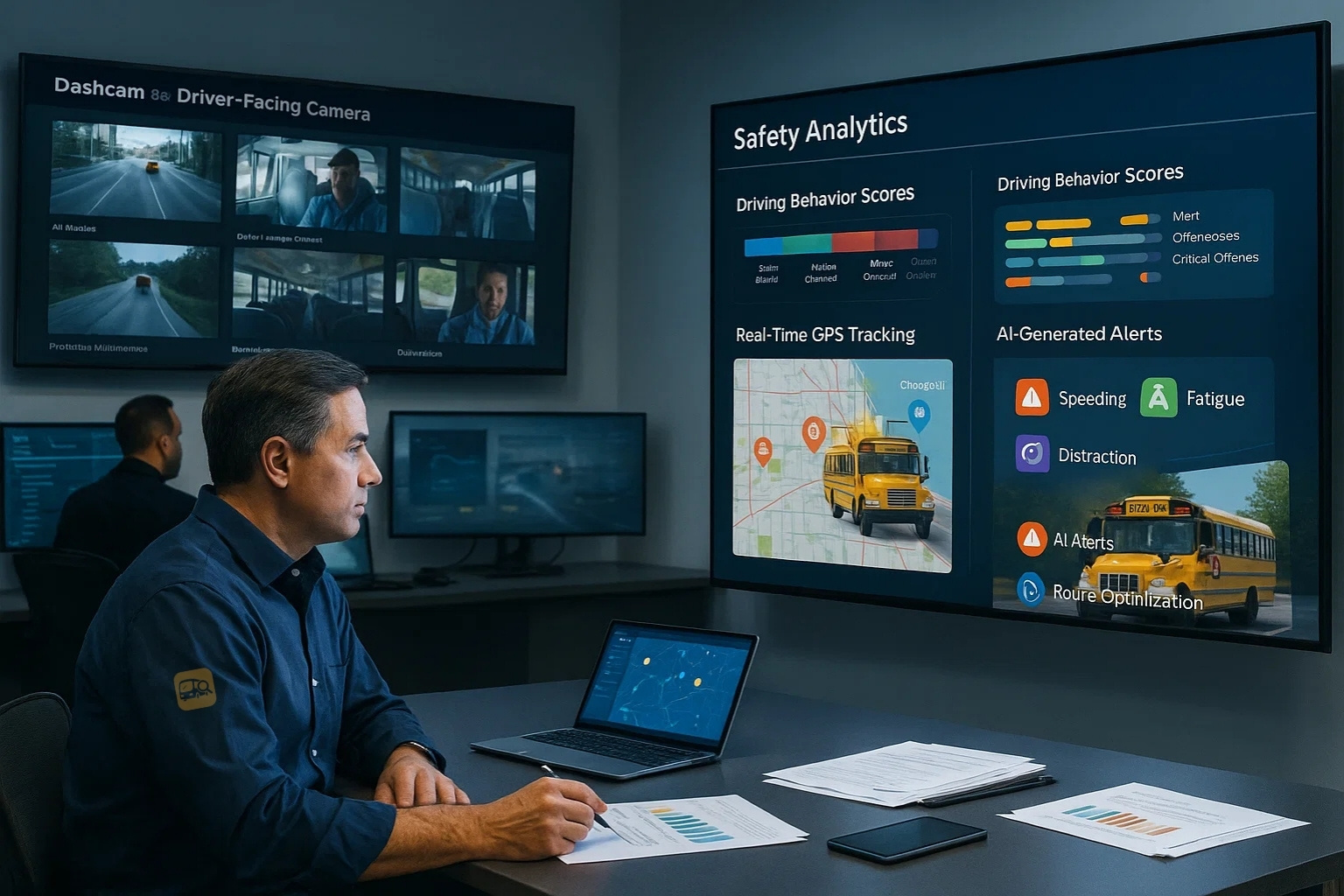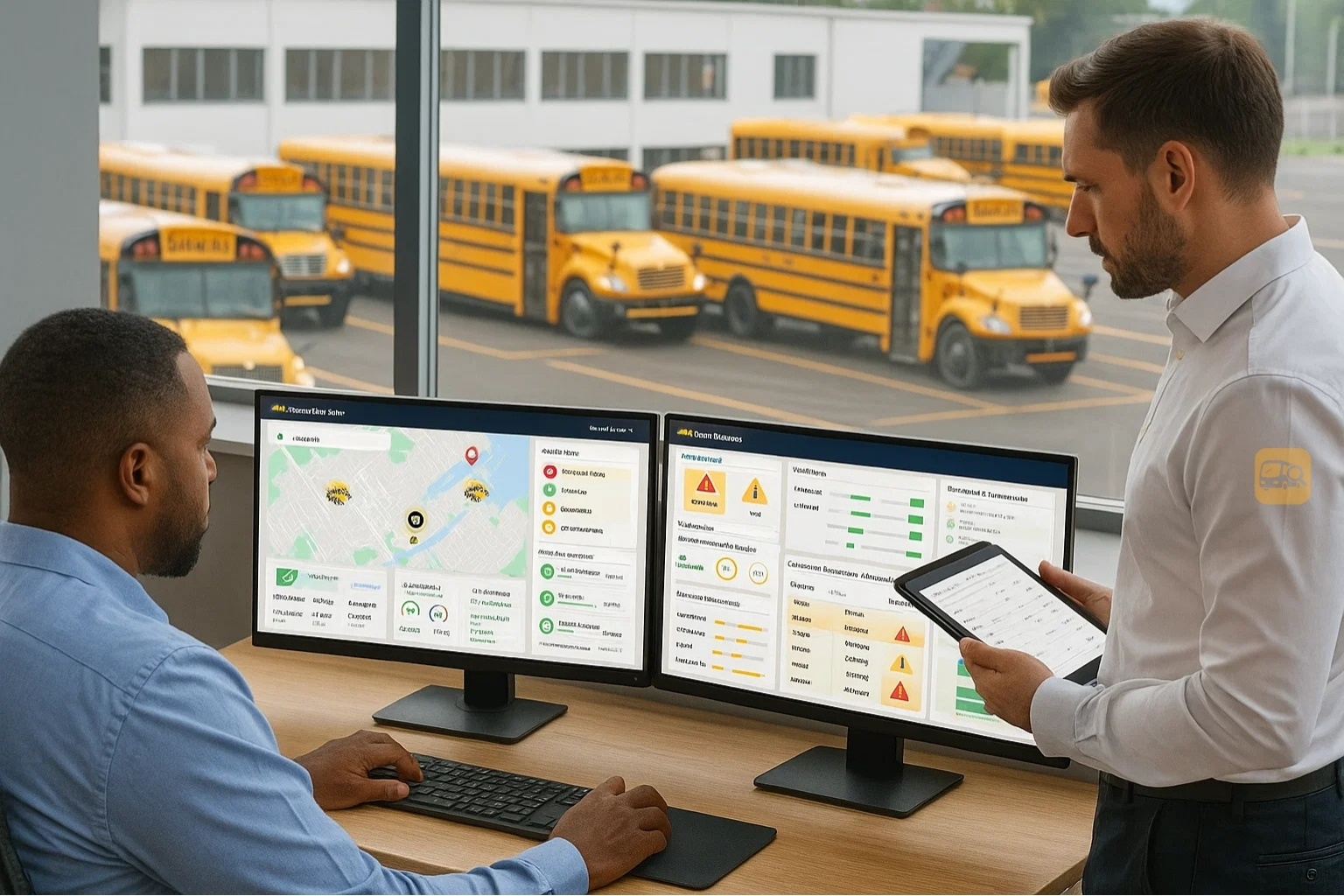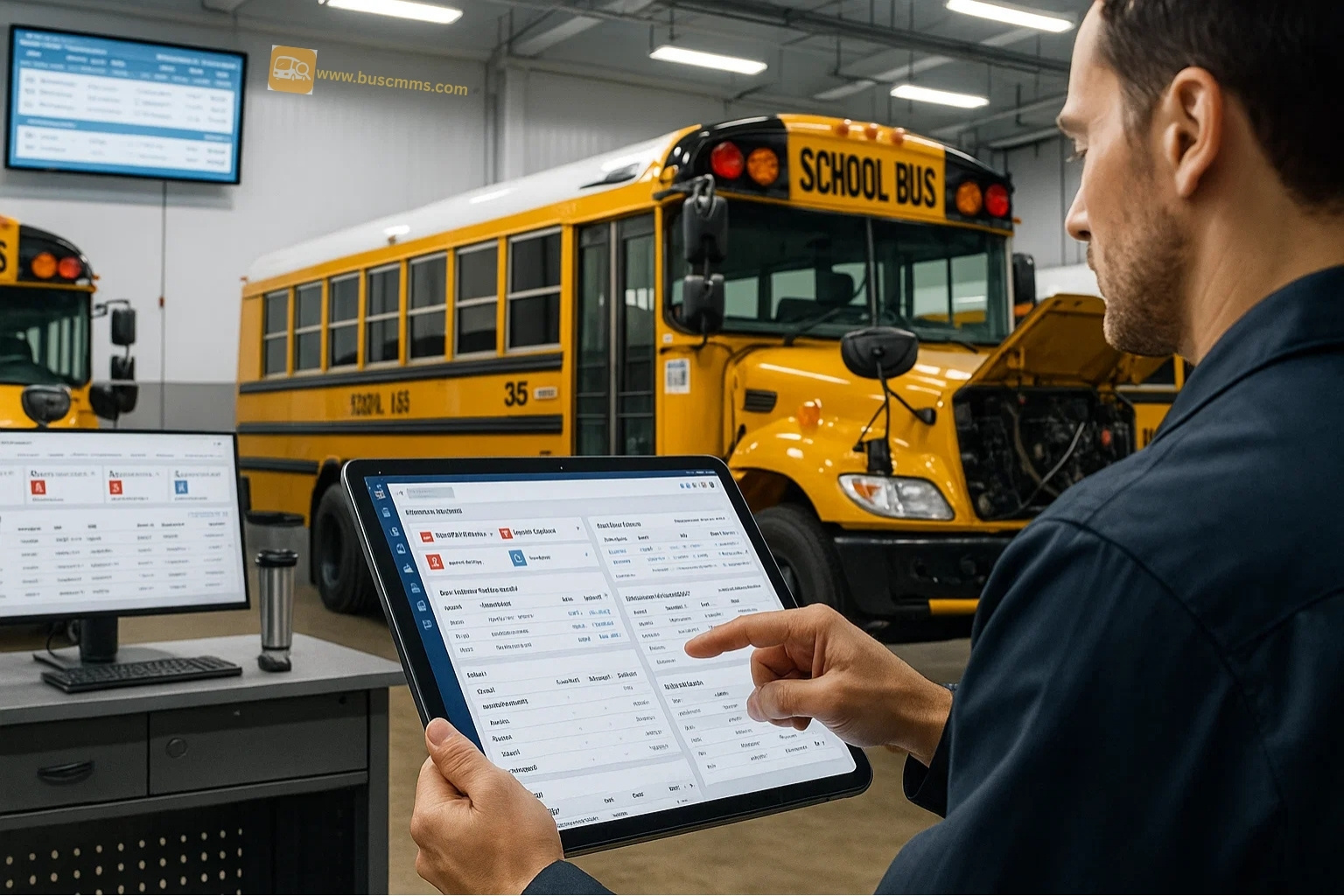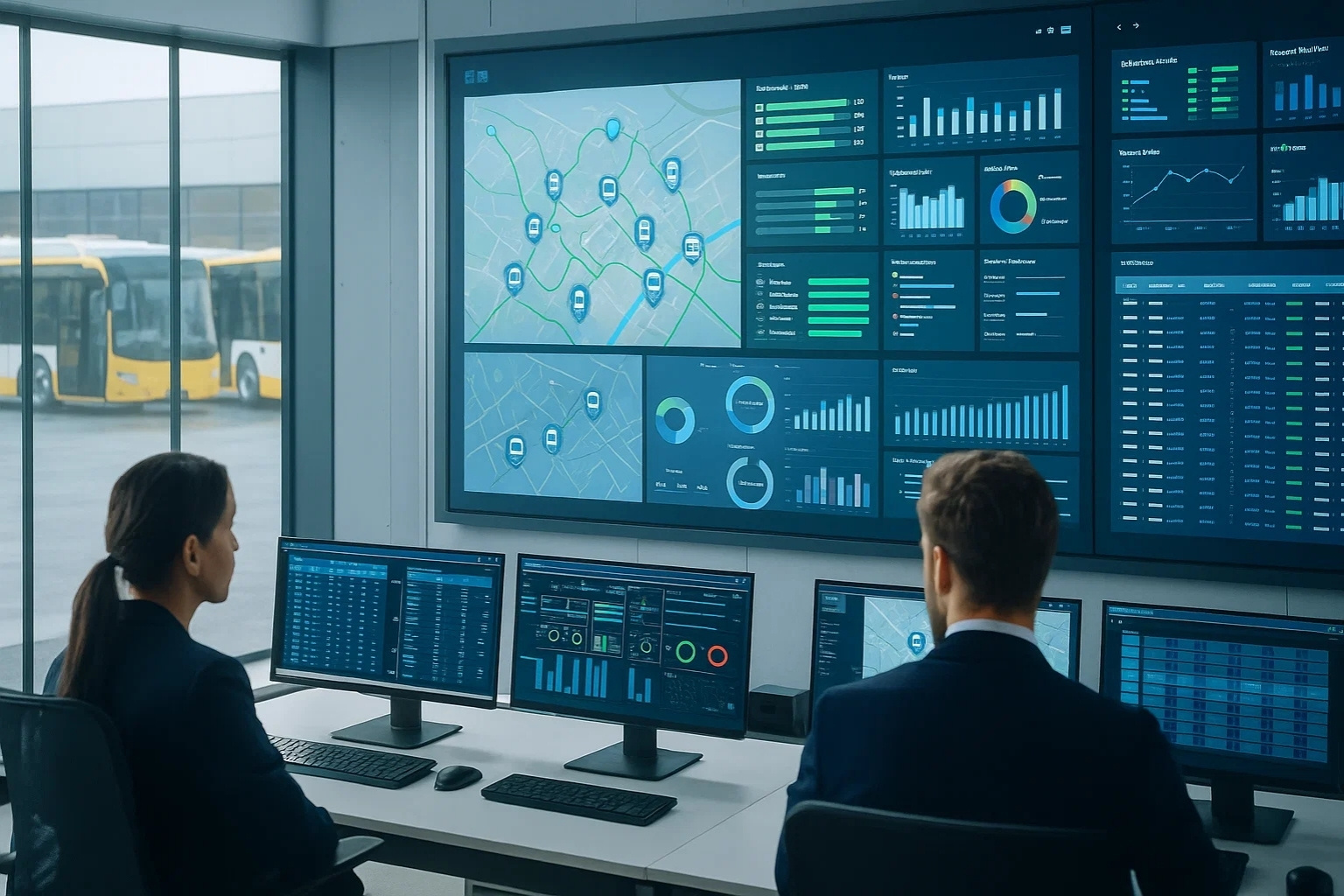The modern bus fleet management landscape has evolved dramatically over the past decade. With increasing demands for operational efficiency, regulatory compliance and cost optimization, transit operations professionals are turning to sophisticated software solutions that go far beyond simple vehicle tracking. From predictive maintenance systems to advanced telematics tools, the right fleet software can transform how you manage everything from driver management to fuel efficiency optimization.
For US manufacturing professionals in the transit industry, selecting the right bus management software isn't just about keeping vehicles on the road—it is about creating integrated systems that maximize uptime, reduce maintenance costs and ensure seamless public transport operations. Whether you are managing a school district's fleet or overseeing municipal transit operations, these seven categories of management software represent the essential tools every modern fleet operation should consider. Get started today to transform your fleet operations.
1. CMMS Systems: The Foundation of Modern Fleet Maintenance
Computerized Maintenance Management Systems (CMMS) have become the backbone of efficient bus fleet management. These platforms integrate maintenance scheduling, work order management, and inventory control into unified systems that dramatically improve operational efficiency.
Leading CMMS systems for bus fleets include solutions like ManagerPlus, which specializes in transit operations, and Fleetio, known for its user-friendly interface and comprehensive reporting capabilities. These platforms excel at preventive maintenance scheduling, allowing fleet managers to track service intervals, monitor component lifecycles, and automatically generate work orders based on mileage, engine hours, or calendar schedules.
What sets modern CMMS apart is their integration with vehicle diagnostics systems. When combined with telematics tools, these platforms can automatically detect potential issues before they become costly breakdowns. For manufacturing professionals, this predictive approach represents a significant shift from reactive maintenance strategies to proactive fleet management that reduces total cost of ownership by up to 25%. Ready to experience these benefits? Sign up now to start optimizing your maintenance operations.
Transform Your Fleet Maintenance Operations
Cut maintenance cost by up to 25% and maximize vehicle uptime with an advanced CMMS—see the impact fast.
2. Advanced Telematics and Fleet Tracking Solutions
Telematics integration has revolutionized how fleet managers monitor and optimize bus operations. Modern telematics tools provide real-time insights into vehicle performance, driver behavior and route efficiency that were previously impossible to capture systematically.
Industry-leading solutions like Samsara and Verizon Connect offer comprehensive platforms that combine GPS tracking with advanced vehicle diagnostics. These systems monitor everything from fuel efficiency and engine performance to driver safety metrics and compliance tracking. For transit operations, this level of visibility enables data-driven decision-making that improves both operational efficiency and passenger safety.
Technology Integration Insight: The most successful implementations combine telematics data with maintenance software and route optimization tools, creating integrated ecosystems that provide actionable insights across all aspects of fleet operations. Want to see how this works? Book a demo to explore integrated solutions.
Modern telematics platforms also excel at fleet compliance management, automatically tracking driver hours of service, vehicle inspection requirements, and maintenance schedules. This automated approach to compliance tracking reduces administrative burden while ensuring adherence to federal and state regulations that govern public transport operations.
3. Route Optimization and Scheduling Intelligence
Route optimization software has become increasingly sophisticated, moving beyond simple GPS navigation to include dynamic scheduling algorithms that account for traffic patterns, passenger demand, and fuel efficiency considerations. These tools are particularly valuable for manufacturing professionals managing complex transportation networks.
Solutions like Optibus and Remix specialize in transit operations, offering platforms that optimize everything from route planning to driver scheduling. These systems use machine learning algorithms to analyze historical data, predict demand patterns, and suggest operational improvements that can reduce fuel costs by 10-15% while improving service reliability. Start optimizing your routes today with advanced scheduling intelligence.
4. Driver Management and Safety Platforms
Effective driver management goes beyond simple scheduling—modern platforms integrate training management, safety monitoring, performance analytics, and compliance tracking into comprehensive solutions that improve both operational efficiency and safety outcomes.
Leading driver management platforms like SmartDrive and Lytx combine in-vehicle monitoring systems with coaching tools that help drivers improve performance while reducing safety incidents. These systems use AI-powered video analytics to identify risky behaviors, provide real-time feedback, and generate targeted training recommendations.
For transit operations, these platforms also manage complex scheduling requirements, automatically considering driver qualifications, route certifications, and hours of service regulations. This automated approach reduces scheduling conflicts while ensuring compliance with transportation industry regulations. Improve your driver safety metrics—get started now.
Second CTA Section
Ready to Optimize Your Fleet Operations?
Improve safety, cut cost, and boost efficiency with an integrated bus management platform—see results fast.
5. Predictive Analytics and Performance Intelligence
The integration of predictive analytics into bus fleet management represents one of the most significant technological advances in recent years. These systems analyze vast amounts of operational data to identify patterns, predict equipment failures, and optimize resource allocation across entire fleets.
Advanced analytics platforms like IBM Maximo and SAP Asset Intelligence Network combine machine learning algorithms with real-time data streams from vehicle diagnostics, maintenance systems, and operational databases. This comprehensive approach enables fleet managers to predict component failures weeks or months in advance, allowing for planned maintenance that minimizes downtime and reduces emergency repair costs. Want to leverage predictive analytics? Schedule a demo to see it in action.
Manufacturing Excellence: Predictive analytics platforms are transforming how transit manufacturers approach total cost of ownership, providing insights that benefit both manufacturers and fleet operators through improved reliability and reduced lifecycle costs.
These platforms also excel at identifying operational inefficiencies that might not be apparent through traditional reporting methods. By analyzing patterns in fuel consumption, maintenance costs, and operational performance, they can suggest specific improvements that deliver measurable ROI within months of implementation.
6. Fuel Management and Efficiency Systems
With fuel costs representing up to 40% of total operating expenses for many bus fleets, specialized fuel management software has become essential for cost control and environmental sustainability. These systems track consumption patterns, identify inefficiencies, and provide actionable insights for reducing fuel usage.
Modern fuel management platforms integrate with telematics systems to monitor real-time consumption, track idling time, and analyze driver behaviors that impact fuel efficiency. This comprehensive approach enables fleet managers to implement targeted improvements that can reduce fuel costs by 15-20% annually. Start reducing your fuel expenses—sign up today for fuel management tools.
7. Compliance and Regulatory Management Tools
Navigating the complex regulatory landscape of public transportation requires sophisticated compliance management tools. These platforms automate the tracking of federal DOT requirements, state regulations, and local ordinances that govern bus operations.
Leading compliance management solutions provide automated alerts for inspection deadlines, driver certification renewals, and regulatory changes. They maintain comprehensive audit trails and generate required reports, reducing the administrative burden while ensuring continuous compliance with all applicable regulations. Simplify your compliance management—get started now with automated tracking.
Third CTA Section
Take Your Fleet Management to the Next Level!
Ensure compliance, streamline operations, and prove ROI with an integrated bus management platform.
The evolution of bus management software reflects the broader transformation of the transportation industry toward data-driven operations and predictive maintenance strategies. For US manufacturing professionals, these seven categories of software represent essential tools for maximizing fleet efficiency, ensuring regulatory compliance, and delivering superior transit operations.
Success in modern fleet management comes from selecting integrated solutions that work together seamlessly, providing comprehensive visibility and control across all aspects of operations. The companies that embrace these technologies today will be best positioned to thrive in an increasingly competitive and regulated industry. Ready to join them? Create your account or book a demo to get started.
Frequently Asked Questions
Q: What's the most important bus management software for new fleet operations?
A: CMMS systems form the foundation of effective fleet management. They integrate maintenance scheduling, work order management, and inventory control, providing the operational structure needed for efficient bus fleet operations. Start with a robust CMMS platform and build additional capabilities around it. Sign up now to build your foundation.
Q: How do I choose between different telematics and fleet tracking solutions?
A: Focus on integration capabilities, scalability, and specific feature sets that match your operational needs. Look for platforms that can integrate with your existing CMMS, provide real-time diagnostics, and offer comprehensive reporting. Consider solutions like Samsara or Verizon Connect that provide proven track records in transit operations. Schedule a consultation to discuss your specific requirements.
Q: What ROI can I expect from implementing bus management software?
A: Well-implemented bus management software typically delivers 15-25% reduction in maintenance costs, 10-15% improvement in fuel efficiency, and 25-40% reduction in safety incidents. Most fleets see positive ROI within 12-18 months, with ongoing benefits that compound over time through improved operational efficiency. Request a personalized ROI analysis during your demo.
Q: How important is predictive analytics for smaller bus fleets?
A: Predictive analytics becomes valuable even for smaller fleets, especially when integrated with existing CMMS and telematics systems. The key is starting with basic predictive maintenance features and expanding capabilities as your fleet grows. Even simple predictive tools can prevent costly breakdowns and extend vehicle lifecycles. Get started today regardless of your fleet size.
Q: What should I look for in driver management software integration?
A: Look for platforms that integrate seamlessly with your existing systems, provide real-time safety monitoring, automate compliance tracking, and offer targeted training programs. The best solutions combine in-vehicle monitoring with coaching tools and can integrate with scheduling and route optimization systems for comprehensive driver management. Book a demo to explore integration options.


